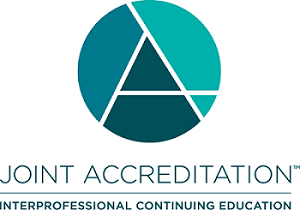Critical Illness/Dysphagia
The swallowing process is commonly affected by the normal aging process, impacting a growing number of individuals older than 60 years. It is estimated that 40-50% of older individuals residing in long-term care facilities have swallowing disorders and over 30% of the non-institutionalized older adults have a history of swallowing problems. Aspiration risk has been determined in up to 80% of patients with stroke and over half the population have been cited to have silent aspiration. Patients with MS have incidences of dysphagia over 30% of the time and over half of the population with Parkinson’s have dysphagia. Given these populations, diagnoses and society’s overall relationship with food as a social activity, clinicians in Physical Medicine are at the forefront of understanding how to best serve individuals who suffer with dysphagia. Physical Medicine teams, especially occupational therapists, fully understand the impact of the physiological, basic need for nutrition but also the larger psychological, social and motivational impact as well. The occupation of tending to this self-care need can span all settings: rehab facilities, inpatient/outpatient settings, homecare from pediatrics to adults, but is also adding this in earlier in the intensive care setting. The purpose of this workshop is to gain awareness of this specialty practice and gain knowledge that all physical medicine clinicians should have in their tool boxes.
Accreditation Statement:
In support of improving patient care, Mayo Clinic College of Medicine and Science is jointly accredited by the Accreditation Council for Continuing Medical Education (ACCME), the Accreditation Council for Pharmacy Education (ACPE), and the American Nurses Credentialing Center (ANCC) to provide continuing education for the healthcare team.
Credit Statement(s):
AMA
Mayo Clinic College of Medicine and Science designates this live activity for a maximum of 2.50 AMA PRA Category 1 Credits™. Physicians should claim only the credit commensurate with the extent of their participation in the activity.
AOA
The American Osteopathic Association (AOA) designates this program for a maximum of 2.5 AOA Category 2-A credits.
PT
The course is co-sponsored by the Program in Physical Therapy, Mayo Clinic College of Medicine and Science / Mayo Clinic School of Health Sciences. This course meets the criteria for 2.5 category I Continuing Education Units per Minnesota Physical Therapy Rules 5601.2400, 5601.2500.
The course is sponsored by the Mayo Clinic College of Medicine and Science and meets the criteria for category A Continuing Education for up to 2.5 contact hours (.25 CEUs) in Arizona, pursuant to the administrative rules of the Arizona Board of Physical Therapy [A.A.C. R4-24-402(A)(2)].
AOTA
 Mayo Clinic - Rochester Campus is an approved provider of continuing education by the American Occupational Therapy Association #5660. The assignment of AOTA CEUs does not imply endorsement of specific course content, products or clinical procedures by AOTA. At the conclusion of this conference, participants will be awarded a certificate for up to .25 AOTA CEUs.
Mayo Clinic - Rochester Campus is an approved provider of continuing education by the American Occupational Therapy Association #5660. The assignment of AOTA CEUs does not imply endorsement of specific course content, products or clinical procedures by AOTA. At the conclusion of this conference, participants will be awarded a certificate for up to .25 AOTA CEUs.
Other Health Care Professionals
A certificate of attendance will be provided to other health care professionals for requesting credits in accordance with state nursing boards, specialty societies, or other professional associations.
For disclosure information regarding Mayo Clinic School of Continuous Professional Development accreditation review committee member(s), please go here.
Available Credit
- 2.50 AMA PRA Category 1 Credit™
- 2.50 AOA
- 2.50 Attendance
- 2.50 AOTA Contact Hours
- 2.50 PT

 Facebook
Facebook X
X LinkedIn
LinkedIn Forward
Forward